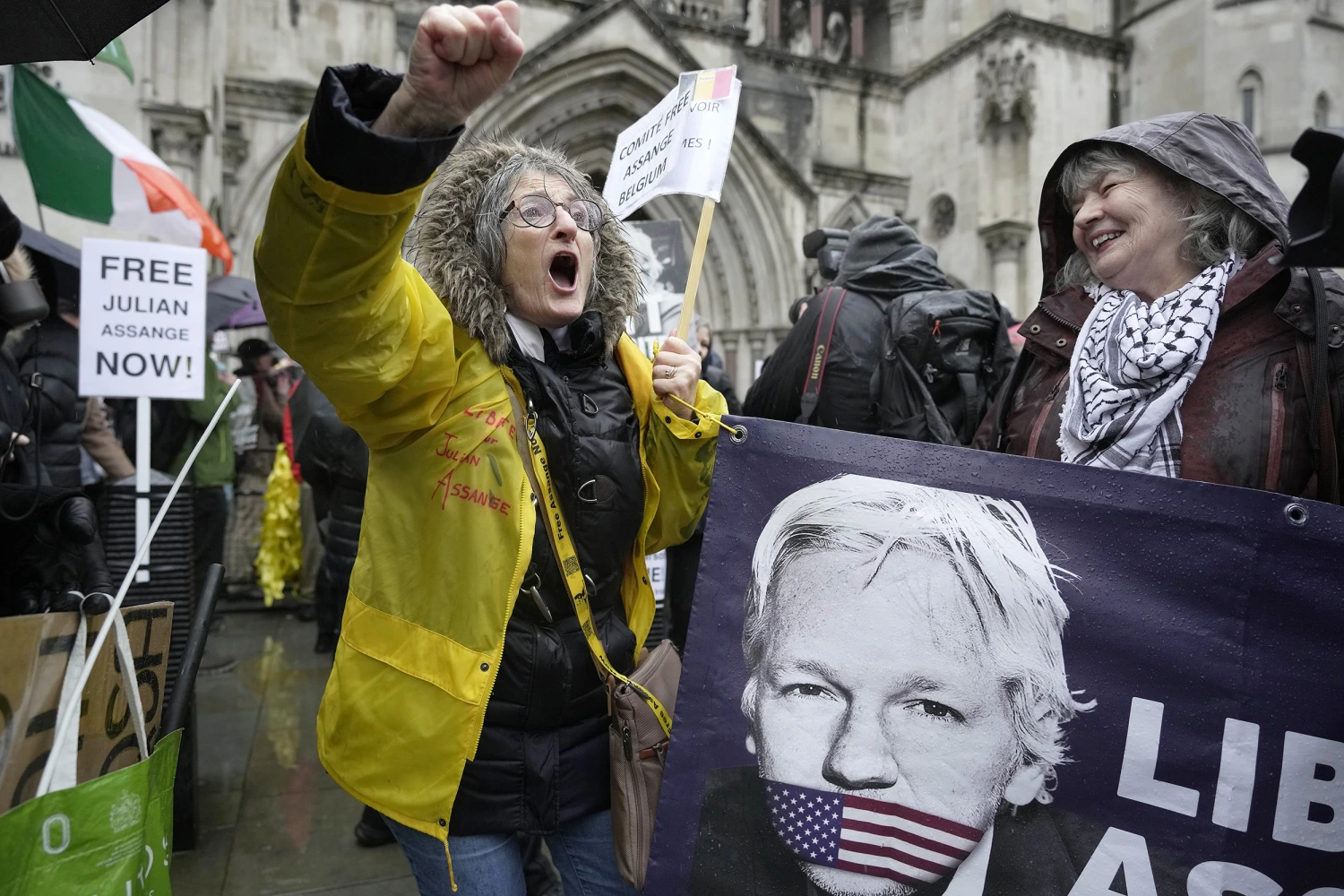Julian Assange, the founder of WikiLeaks, awaits a pivotal decision regarding his extradition to the United States, where he faces charges related to espionage. The outcome of his recent legal battle in Britain remains uncertain, with two High Court judges postponing their verdict until next month.
Following a two-day hearing, Assange’s legal team argued vehemently against his extradition, citing concerns of a “flagrant denial of justice” should he be sent to the U.S. Conversely, U.S. attorneys contended that Assange’s actions, which included the indiscriminate publication of classified documents, posed serious risks to lives and national security.
The High Court now deliberates on whether to grant Assange a new appeal, his final recourse after enduring five years of legal battles while incarcerated in a British high-security prison. However, a definitive ruling on Assange’s fate is not expected until March at the earliest.
Should the judges rule against Assange, he could appeal to the European Court of Human Rights, although supporters fear extradition may precede this process, given that the British government has already authorized it. The charges against the 52-year-old Australian stem from his role in publishing classified U.S. documents nearly 15 years ago, including allegations of espionage and computer misuse.

During the hearing, lawyer Clair Dobbin, representing the U.S. government, emphasized the gravity of Assange’s actions, asserting that he had not merely engaged in journalistic activities but had actively encouraged hacking and theft to benefit WikiLeaks.
In response, Assange’s supporters maintain his status as a whistleblower who exposed U.S. military misconduct, arguing that the prosecution is politically motivated and that he would not receive a fair trial in the U.S.
The legal saga surrounding Assange began a decade ago when he faced allegations of rape and sexual assault in Sweden. Seeking refuge in the Ecuadorian Embassy in London, he evaded extradition until his arrest and subsequent imprisonment in 2019. Despite Sweden dropping its investigations, the U.S. continued its pursuit, leading to the recent legal proceedings in Britain.
Throughout this ordeal, Assange’s health has deteriorated, both physically and mentally, sparking concerns among his family and supporters. Calls for his release have grown louder, with protests outside the High Court demanding an end to his prolonged legal battle.
As the courts deliberate, Australian lawmakers have joined the chorus advocating for Assange’s return to his homeland, underscoring the protracted nature of his case and urging an end to the prolonged legal wrangling.


